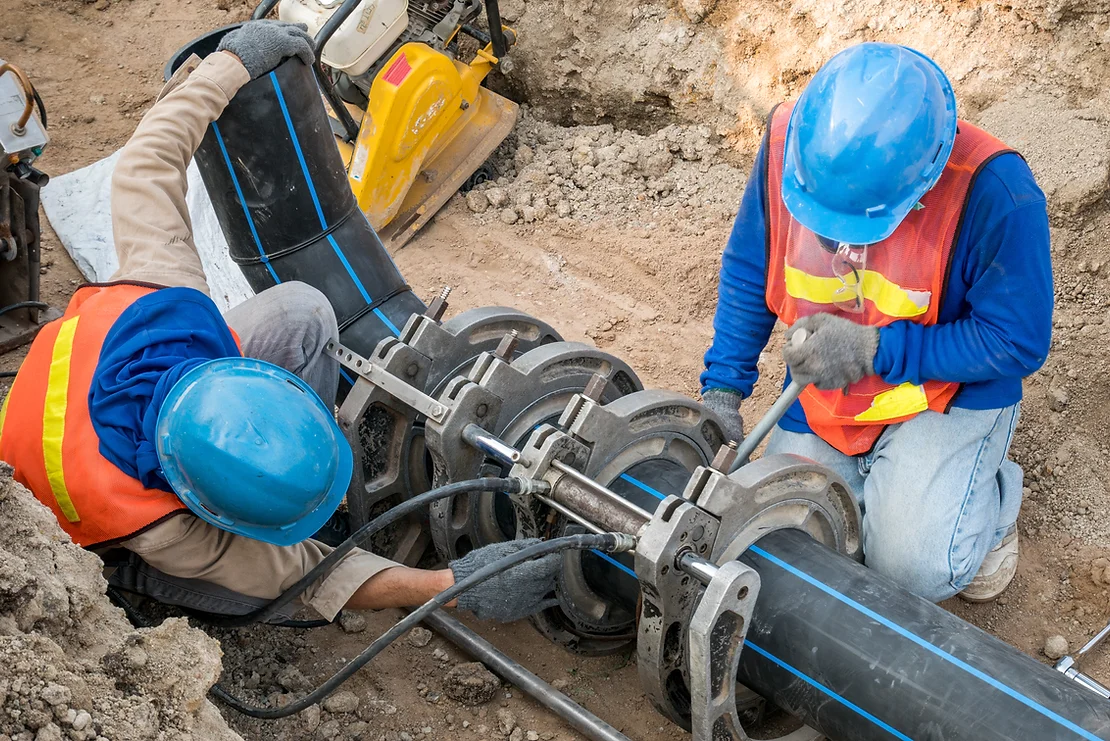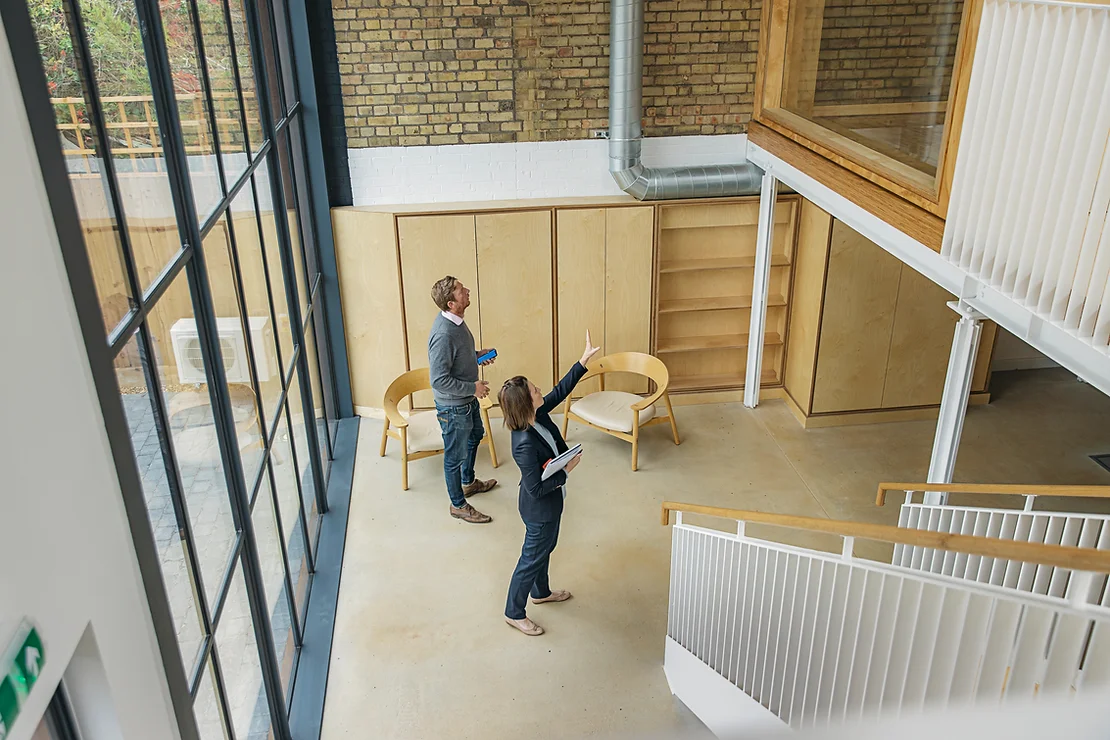You are perhaps reading this blog because you have done a great amount of hard work to build your HVAC business and are proud of your achievements. HVAC is one amongst the highly desirable businesses on the market in the construction industry. There is a common saying that “every business will sell someday, either you will sell it, your family member will sell it, or taxman may sell it”. If you’re brooding about selling your business or have received an offer to buy business from a competitor, this is often a good time to coach yourself on the process needed to sell or divest out of a business.
How does the market values HVAC businesses?
The most common method used in the marketplace for valuing a HVAC company is with the multiple of earnings method. Now the question arises how do you calculate the earnings for a small business, is it what shows on the tax returns or is it something else? There are many terminologies used in the calculating earnings, like cash flow, free cash flow, seller’s discretionary earnings, EBITDA, revenue multiples etc. Below I am going to discuss a couple of earning methodologies –
Seller’s Discretionary Earnings Method (SDE):
SDE represents the whole financial benefit one owner operator can expect to receive from their business. Expenses that are discretionary in nature and charged to business like owner operator’s salary, owner’s benefits, depreciation of equipment and other assets, and other discretionary items (home-office rent, utilities, one-time expenses) are added back into the profits before taxes to point out the full financial benefit that company can provide to an owner operator. You will also need to deduct the reasonable cost for anything which is business related but is not charged to business (I often see rent for a property owned by sister company of the business is not charged at a fair market rate). Below I will give you an example, so you’ll be able to learn the way to calculate your SDE yourself.
Let’s say the business shows a net profit of 100K, corporate taxes of 15K, owner salary including government remittances of 100K, donations of 10K, amortization of 30K, loan interest of 20K, doesn’t charge rent to the business of 60K for the property that is owned by the shareholders and the list can go on and on.
As such in the above example, SDE would be 100K + 15K + 100K + 10K + 30K + 20K – 60K = $215K. As such, you an see if the figures were not normalized to make an apples-to-apples comparison then a buyer would have valued the business based upon 100K shown on the corporate tax returns and the buyer would have way undervalued the business.
Earnings Before Interest, Taxes, Depreciation, and Amortization (EBITDA) method:
This method for calculating the cash flow produced by business is similar to SDE method, except this method is typically used when valuing larger businesses (say $2,000,000 in revenue or more). The key difference between EBITDA and SDE method is that EBITDA assumes that the person or entity buying the business doesn’t intend to become an owner operator of the business, instead the buyer will be infusing management to run day to day activities of the business. EBITDA calculation will factor in a reasonable market-salary to replace the owner operator. For example, if the owner is charging themselves higher salary than the going in rate to replace the owner then part of the part of the owner salary will be added back to the business net profits shown on the financials. In almost all cases, businesses priced on EBITDA often pull a better multiple because they’re not owner-operated and instead can be priced as investments.
How should you not value a HVAC Business? Revenue multiple method (YES or NO?)
On regular basis I get approached by business owners, who believe that their business is worth some percentage or multiple of sales. They often ask, how to sell my hvac business. This revenue multiple method can definitely provide us with some indication of the value drivers of the business, but this unfortunately is not a reliable valuation method. Just think for a second that how much would like to pay for a business that is losing money every month despite hefty sales figures. Yes, it maybe possible to turn the business around after a certain breakeven point but then all these variables will have to be factored in the valuation of the business. Have I ever sold a business that is losing money on regular basis, Yes I have, but I can also tell you that that another similar business doing the same revenue with profitability would have commanded higher valuation. Also, it’s not just the revenue or profitability that drives the value of the business, there can be other factors like, equipment, client contracts, employees, branding etc. that will also play critical role in the value of the business. It’s not that easy to figure out how much to pay for air conditioning business for sale. However, unfortunately when it comes to small businesses, most buyers tend to be unsophisticated, and they don’t often look for turnaround opportunities and mostly get excited by knowing how much the business makes and how long will it take them to get the money back.
Let’s consider an example –
Say as per the 50% revenue method, a corporation that is generating $5 million in sales could be values at $2.5 million. Now, think about an identical company that is doing $5M is sales and is making a loss of $100,000 per year? How much would like to pay to buy this business and lose $100K every year. Again, I am not saying that this business has no value but it will definitely command a much smaller value than the one which is generating positive cash flow.
While your revenue number definitely shows the scale of your business but it’s not a smart method of valuing a business by itself.
How can we increase the value of the business or multiple chosen for the value of the business?
When buying or selling a business, there are many aspects that can influence the multiple of cash flow that the business will achieve. If I have to use some high level rule of thumb then I may say that most businesses will fall between the range of 2 to 4 times SDE or 4 – 7 times EBITDA.
If you would like to be near the highest of that range, there are some changes you may need to make to the business. The great thing about businesses is that you can buy a business at a low range of multiple because the sellers hasn’t prepared the business to sell and then make the relevant changes and improve the multiple the business may command and hence tremendously increasing the value of your business.
Almost on regular basis I have conversations with the buyers who don’t really know the kind of business or industry they are looking for. During my exploratory meetings with the buyers and getting into further discussions I find that every buyer seems to describe to be looking for a perfect business (where perhaps they don’t have to work or can run the business passively). Unfortunately, I still have to come across a perfect business especially when we are looking for the small business market. There aren’t any perfect businesses. However, the recommendations below can make your business more valuable, but you do not have to check all the boxes.
Let’s talk about some general factors that can influence the business value
How much is the owner involved in the business?
The more involved an owner is within the production of revenue, the less valuable that business enterprise will be in the eyes of the buyer especially when the business needs technical knowhow. I however, understand that It is not easy to back yourself out of day-to-day operations of the small business, but it should be an owner’s goal. Just think about it this way, if you can not take 2 weeks vacation without business running on its own, then perhaps you are too involved in the business.
As a starting point, begin with preparing the operation manuals for your business, but also consider your management team. Do you have the right team in place to have your business operating smoothly if you stepped away for a month or longer? Perhaps, think of building a compensation structure that aligns the interest of your employees with the business.
How clean are your financial records?
I can’t emphasis on this point enough especially when it comes to businesses in the construction industry. More often than you can believe, I hear from business owners; “I make a lot of money or I used to make a lot of money”, however as the saying goes, “I’ll believe only after I see it”. It’s fairly common for owners to live of their business, but sophisticated buyers will never pay you for earnings you can’t prove. Time permitting, start cleaning a preparing your financials at least 3 to 4 years prior to selling your business. You as a seller, may be making tons of money but the potential buyer will only feel strongly about your business viability if the numbers can be proven accordingly.
Consider this: for each dollar you’re taking off the books, you’re perhaps subtracting two to seven dollars from your business value versus a few cents of taxes that you saved on your business income. Because businesses are sold on a multiple of earnings, you reduce your sale price drastically with every dollar you can’t prove you made.
How big is your company?
Lenders and buyers generally recede away from businesses with an acquisition price below $300,000, making it difficult to source financing for anything below that threshold. If you’re operating a very small HVAC business, it’s going to be worth your effort to grow the business to an investable level before you sell. Otherwise, you will need to risk seller financing the business. Just think about a business that makes 50K SDE and wants to sell the business for 3 times multiple at an asking price of 150K. In most cases, buyers don’t want to buy businesses that generate below 100K in SDE primarily because it’s worth the headache to own business that only makes 50K.
Do you have customer or supplier concentration issues?
If one or some your customers frame an oversized percentage of your company’s annual sales, buyers will perceive this as high-risk. It won’t necessarily turn them away, but it’ll impact your value. Have your client base diversified into different customers and if possible into different industries. Think about it, if you have only two customers that make bulk of your sales and post the sale of business one of those clients is lost, then buyer loses half of the business just like that. A prudent buyer will factor this risk into the value of the business.
How much is the working capital requirement or asset replacement cost?
On average, how much net working capital is required to operate the business? How long does it take you to collect your accounts receivables etc.? How often does the business need to purchase new machinery? Do your clients pay you some down payment before starting work? Can you borrow on terms from the suppliers? These are some of the basic questions a prudent buyer would consider when buying the business. When a buyer steps in, they’ll have to have enough money to pay employees, suppliers, rent and keep the lights on before any revenue will come in. If you have been extending credit to clients for more than 30 days, this may make it difficult for buyers to manage their cash flows. By cleaning up your assets over 30 days, you will become more attractive to potential buyers because the amount of investment a buyer will have to make to buy your business will be lower hence increasing their ROI (return of investment).

Other factors that can influence the price of a HVAC businesses
Service contracts
Almost all buyers love long-term contracts. They protect the business from volatility and permit them to predict revenue and earnings. From an operations standpoint, they also allow you estimate more effectively and plan routes for your team members.
Commercial clientele VS. residential clientele
Though many companies tend to focus strictly on residential type of work; Commercial service businesses can be seen as less unpredictable. Commercial HVAC companies tend to sell for higher multiples than strictly residential companies again due to the fact that the contracts are in most case of larger dollar value and the cash flows are more predictable.
Reputation of your business
Reputation is everything. Your business branding is extremely important these days. Make sure to ask your customers to review your services across Google, Angie’s List, Yelp, and other platforms. If you’ve got the resources, you should also consider posting client testimonial videos on your website and other social media platforms – people seem to love these testimonials.
Reliable Employees
One of the most important challenges within the HVAC industry is labour. If your company has a long-time and trustworthy team, it’s very valuable. At the very least, ensure your business contains a steady process for seeking out new employees and hiring as employees inevitably turns over. Every time I sell a HVAC business or any other construction business, I see business buyers concerned about the retention of the employees, they don’t want employees leaving as soon as they take over the company.

Digital Marketing
Many studies across the board have found that consumers research products online before they create a buying decision. Your digital presence is more important today than ever before. If you are not found online, chances are you are missing business to your competitors. Consider investing in an exceedingly nice website, improve your search engine optimization (SEO), and explore for areas to include your brand into daily business activities (logos on vehicles, caps, shirts, etc.). As younger demographics become homeowners and business owners, more of your customers are going to be searching online for their next HVAC professionals.
Now the factors that can lead to reduction in the value of HVAC business?
More Installations focused than Maintenance focused
As mentioned, service contracts should be your focus. Let’s consider two HVAC businesses available for sale side by side. One has service contracts that leads to predictable recurring revenue and the other one new-build one-time sort of projects whereas the business owner has to find and sell new contracts every day. Which one do you think is more valuable? Businesses that are dependent totally on installations carry higher risk than those with service contracts. If your primary focus is on installations, it is best to put some systems in place for estimating jobs, selling new contracts etc. so that there is some predictable revenue streams built by those systems and it would be advisable to have someone besides the owner take responsibility of those jobs.
Primarily Residential Clientele
Studies have shown that households earning but $100,000 annually don’t seem to be likely to spend their money on HVAC services. And even the households earning over $100,000 become more price-conscious during economic downturns. If your clientele is totally residential, it’ll hurt the desirability of your business.

Undocumented employees
Although finding employees may be difficult, penalties for hiring undocumented immigrant workers can be huge and can even lead to imprisonment. That’s a risk most buyers won’t be comfortable taking. As an employer, make sure you’re doing all of your due diligence when hiring.
How about selling Your Business to a Competitor?
There’s plenty to contemplate when you are thinking of selling your business to a competitor. Especially if you’re thinking of selling to at least one of the large guys (E.S. Fox Limited, Black & McDonald Limited, Modern Niagara Group Inc, Vollmer Inc)

Many business owners dream of receiving a phone call from one of their large competitors wanting to buy their business. However, in almost every case that I have seen, a competitor goes to pay you less for your business than a owner-operator buyer would. Now, what’s the reason behind that.
Simply, because your competition doesn’t want many of the assets that forms the value in your business. Some of these assets would be:
- The brand and reputation you’ve established (goodwill), well in most cases a large competitor doesn’t care about your brand name because they believe their brand is bigger anyways
- Redundant members of staff, they may actually want to reduce your workforce to save money
- Non-conforming equipment, software, or inventory; why would they want to pay for a CRM or SAP system that you just paid for as they have one of their own.
Selling Your HVAC Business to an owner-operator buyer
Selling your business to an owner-operator buyer is sometimes more profitable than selling to a competitor. This is often because a private buyer must purchase every aspect of your company because it is running today. They are the one’s who need your company brand that you have built over past many years. They don’t have technical knowhow of the business and are willing to pay you for your knowledge.
If your business value is within the $400,000 to $2,000,000 range, I find that an owner-operator buyer is the most-likely candidate.
However, in situations when the business size increases, the pool of individual buyers shrinks, and many such buyers don’t have deep pockets to buy expensive businesses. Once you have reached a particular size, the most effective buyer for your business becomes a strategic buyer or a non-public equity group.
Selling Your HVAC Business to a Strategic Buyer
A strategic buyer could be a business that operates in an industry associated with your business. For HVAC, that would be a property management company, a mechanical contracting company, a plumbing or an electrical contractor business or even a large general contractor who wants to bring some trades inhouse, or perhaps another HVAC company outside of your geographical region. A common strategic buyer can be one who uses your services frequently. Think for a second, does one have any customers whose business may benefit by seizing the function you perform for them?
The main difference between strategic and competitors is that a strategic buyer isn’t an on-the-spot competitor of your business.
Selling Your HVAC Business to Private Equity Firms
Selling your business to a private equity firms will be very profitable, but it’s less common for HVAC businesses. Still, understanding how selling business to private equity operator is vital. Selling to a private equity firm is more like bringing in an equity partner. They love business owners who want to remain in their business, but need help planning to the following level.
The PEG generally buys a majority stake of your company, while you keep a minority position and still operate the business in some capacity. The aim of this partnership is to extend the worth of the business and sell it later down the road, usually to a strategic buyer or larger Private Equity Group.
If you are thinking of selling to an Equity Group, it would enable you to sell some of your business at what it maybe priced for today and take some chips off the table. You may also be able to negotiate a compensation plan, help and grow the business with the financial, strategical and operational assistance of the group, and eventually sell your minority stake when the Group decides to sell – theoretically at a far higher overall value. It isn’t uncommon for you to receive higher payout in the end (which in some cases seems to be more valuable than their original sale).
How Long Does It Take To Sell the HVAC Business?
Wondering how long does it take to sell the HVAC business? Our experience suggests that once the business is priced fairly and there are no unknowns in the marketplace, it can take between three to nine months on the average, counting on variety of things.
One of the foremost important factors is size – the larger your business, the smaller pool of qualified buyers you’ll have, and therefore the more likely a buyer is to request a extended due diligence period.
How Much do Mergers and Acquisition Advisors or Business Brokers Charge?
Like many things when it involves selling a business – there is not any simple answer. Nearly every business and each situation is exclusive. Ultimately the solution boils right down to the dimensions of your business and also the kind of broker you’ll work with to sell it.
How Can I HELP?
If you continue to have questions about selling your HVAC business, I encourage you give us a call. As a M&A advisor and founder of N3 Business Advisors Inc., I’ve worked with many HVAC companies to assist them prepare with the sale of their business, and I would like to facilitate your business sale and help in any way I can. Feel free to reach out to me at 647-967-4222 or email me at nitin@n3business.com

